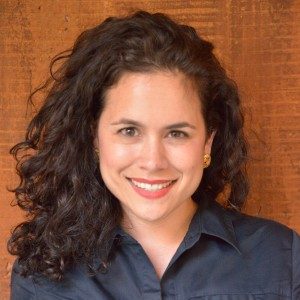
Diana Azurdia, Ph.D.
Dr. Diana Azurdia (she/her/ella) serves as the Director of Mentoring and Inclusion for Graduate Programs in Bioscience. In this role, Dr. Azurdia leads the development and implementation of a strategic plan to enhance diversity in the biomedical graduate student population. A major area of focus includes cultivating a strong inclusive graduate training culture through program development in the areas of personal well-being, professional development, mentorship, and leadership. Dr. Azurdia leverages her position as a Senior Principal Facilitator for the Center for the Improvement of Mentored Experience in Research (CIMER) and the National Research Mentoring Network (NRMN) to promote inclusive mentoring practices at UCLA. She conducts mentoring training programs for researchers at all career stages, contributing over 2000 hours of experience in facilitating conversations that support culturally inclusive evidence-based mentorship practices through training and development.
Dr. Azurdia’s dedication to diversity and inclusion extends beyond her current role. Having previously served as the Treasurer on the Board of Directors for the Society for the Advancement of Chicanos/Hispanics and Native Americans in Science (SACNAS), she continues to be an active member of the Society. Additionally, she acts as the Co-Advisor to the UCLA SACNAS Chapter.
Her academic journey includes postdoctoral research in the Department of Obstetrics and Gynecology at the UCLA David Geffen School of Medicine, where she investigated the role of Wnt/beta-catenin signaling on histone modification and its impact on the metastasis and proliferation of triple-negative breast cancer cells. Dr. Azurdia earned her Ph.D. in Molecular Biology and Biochemistry from UCLA, where she was an NIGMS Predoctoral Fellow (F31). She holds a B.S. in Biochemistry from CSU Los Angeles, where she was an NIH MARC trainee.
As a first-generation Guatemalan-American and the first in her family to attend college, Dr. Azurdia’s journey began in a low-income household with limited resources. Her introduction to the possibilities of a career in science came through the Mathematics Engineering Science Achievement (MESA) program. As the beneficiary of broadening participation programs, she believes that initiatives that promote access to STEM degrees are important for equal representation of all identities in science, the creation of innovations that serve all communities, and income equity.
Dr. Azurdia attributes her academic success to key mentors, shaping her focus on effective mentoring for underrepresented individuals in STEM. Her work reflects a deep commitment to creating a more inclusive and equitable scientific community.
